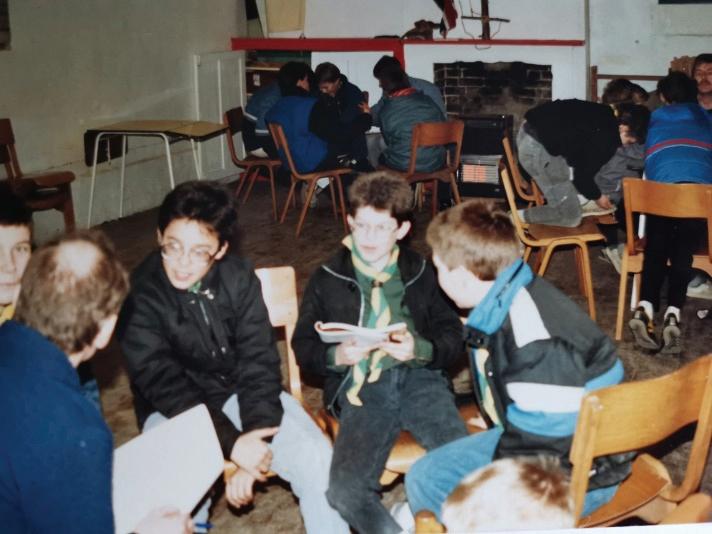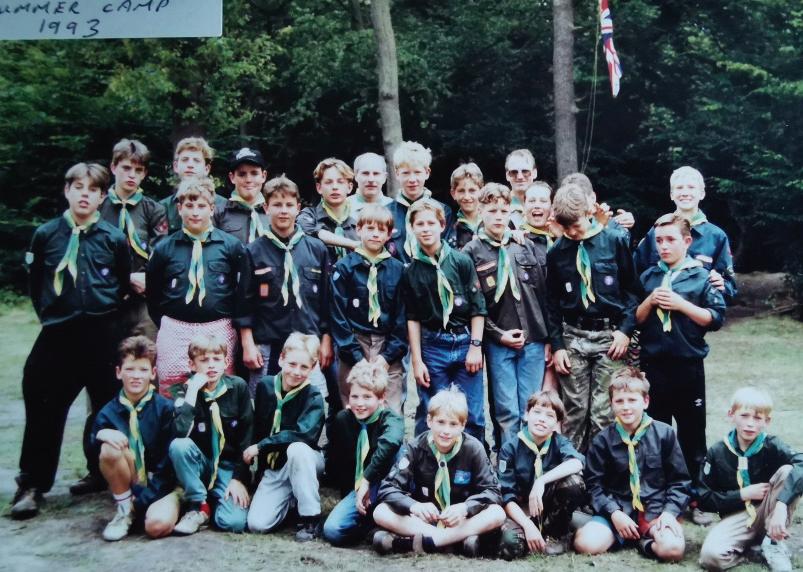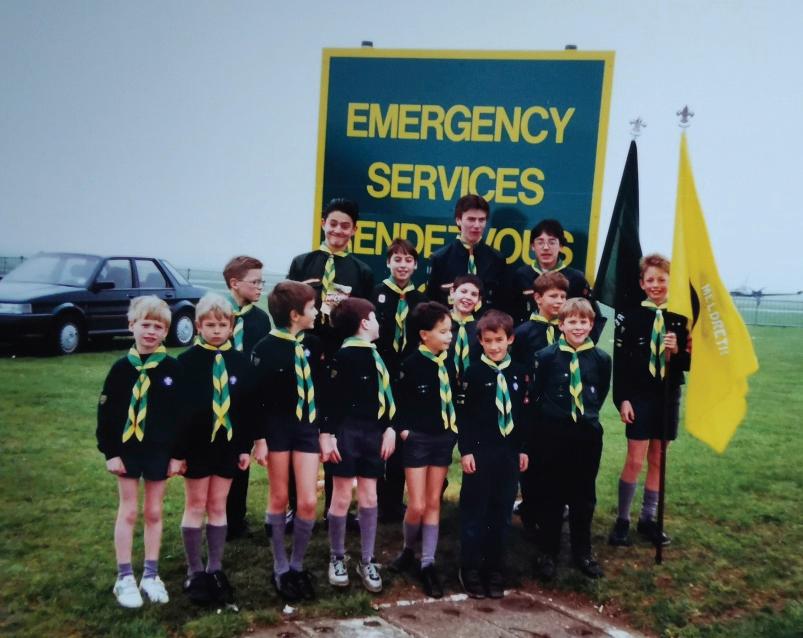
5 minute read
Local History Group 12
Meldreth Local History Group
www.meldrethhistory.org.uk
Advertisement
On our Facebook page (www.facebook.com/meldrethhistory) we recently shared some photographs of Scouts in Meldreth. This prompted Stephen Marshall to get in touch with us and Stephen very kindly shared memories of his involvement with the Scouts in an article, which has now been published on our website. Below is an extract from Stephen’s article. His full account and additional photographs can be viewed on our website.
Personal Memories of Meldreth Scouts, 1982-1996
I first became associated with Meldreth Scouts in about 1982 when I joined the parents’ committee and also helped Rod Barnes, the Scout Leader as an assistant. In 1986 I was approached by the committee to ask if I would take on the leader role for the troop. I believed that as I had been a Scout in my youth, managing to attain my Queen’s Scout Award, I had a responsibility to the younger generation to try and pass on some of my knowledge and help them enjoy the type of good times I had enjoyed as a Scout. Originally the Scouts met in the Village Hall, but with nowhere to store equipment and limitations on the boisterous games which could be played this was not ideal. We then had the chance to move into the old Red Cross hut, next to the British Queen in the High Street. I believe this hut had been built in the 1880s as a working men’s temperance venue, paid for by a subscription of 10 shillings (50p) per man. Its history of use is somewhat vague, but it was used by the Red Cross, probably during WWII and after, but fell Groups working in the Scout Hut out of use by 1980. After considerable communication about its legal ownership, it was agreed the Scouts could have sole use of it for a peppercorn rent (never paid to my knowledge!) as long as we agreed it was owned by the local Conservative Association. When the Scouts “moved in” there was no electricity, no gas and no water on the site.
Our summer camps, always under canvas, were held in the first week of the school summer holidays. My attitude was basically that Scouts should be kept safe, and they had a shirt-off wash each day and clean hands for cooking and eating. Water, trees, mud, games in the dark were mainstays of many of our adventures. Whilst at camp the patrols, under the direction of the Patrol Leader, always cooked their own breakfasts and dinners and the leaders also ate what the boys had cooked. I am pleased to say that every year virtually every Scout chose to come on camp, which other troops told me was an
Summer Camp at Thriftwood, 1993 unusually high percentage. The Scouts were always well represented at our regular church parades and especially at the annual Remembrance Service at the village war memorial. Eagle Patrol was the name given to the offshoot of our troop, who were a patrol of Meldreth Manor School boys, most in wheelchairs, who enjoyed scouting activities under their own leader. We tried to meet together twice a term and held a camp and several day activities all together. Cross country hiking with Scouts in wheelchairs was challenging but good fun was enjoyed by all and it helped develop tolerance and perseverance among all the Scout patrols. Over the ten years I was privileged to lead the troop I had many helpers, usually parents, who contributed massively and without whose help we could not have functioned. The Cub Leader (Akala), also having the role of Group Scout Leader during these years was Brenda Knight, a teacher at Meldreth Primary School, who provided much guidance and assistance. The list of all those who helped the Scouts during these years is very long. I hesitate to name them as I shall inevitably miss several of them but I certainly remember owing many thanks to the following: Mike Mynn, who was our canoe expert, Nick Askham, Philip Knight, Stuart McGill, Jeff Dickinson, Steve Oakman (who took over leadership in 1996, when work travel commitments forced me to leave) and especially Roger Mellor who both helped at

Friday meetings and acted as Quartermaster on many camps ensuring rations were accurately issued, helping in running the camp and most onerously ensuring the patrols scrubbed their cooking pots (used over wood fires) to a mirror like finish before they were packed away at the end of camp. I believe that any activity A Cub and Scout outing to Duxford for young people which encourages friendship, comradeship, community spirit, self-assurance and self-reliance must be a good thing. Whilst I encountered a very few boys who did not enjoy Scouts, and soon left, the overwhelming majority were keen to come along on Fridays, and excited at going on camps and expeditions. I only know of the careers of a few of the Scouts and there must have been many influences on them as growing young men and women, but of those I do know who are now in midcareer they include professions such as: officers in the military, banking and finance, local government, professional football, commercial flying and architecture, all at senior levels. I think it is fair to say that being a Scout didn’t stifle these young people in their careers. Sometimes during my years as leader I wondered why I gave up every Friday evening as well as several weekends and some of my annual leave to help with scouting. One Scout thought it was for the pay, but as I have never met any member of the scouting movement who was paid, it wasn’t that! I always came to the conclusion that it was for the joy of seeing the boys enjoying themselves, making friends, learning skills of leadership and “good citizenship” (even though they didn’t know it) and also for the fun it gave me. P.S. If you want to see the Scout hut today it has been partially rebuilt, more than doubled in size and transformed into a lovely house sited across the car park from the British Queen. I am also certain it now has running water as well as electricity!

Stephen Marshall








